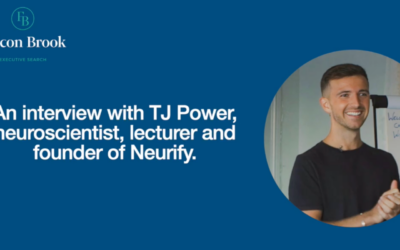Prior to co-founding the Aspuna Group, Maria-Yassin Jah was a senior market strategist with a leading commodities business, at the time Europe’s largest physical commodity trader, having worked as a market expert and analyst.
Falcon Brook spoke to Maria-Yassin about how her experiences as a multi-ethnic woman are core to the values and principles that underline Aspuna’s mission to co-create sustainable agriculture across Sub-Saharan Africa.
I came into the energy sector having studied politics and how risk affects business and society, especially in emerging markets and conflict zones in the Middle East and Africa.
There was a natural fit with energy, even though I was not the classic analyst with a background in economics, maths and science. I used my political knowledge to examine social factors and disparities that drive behavioural economics to create an alternative to the quant narrative.
I moved to a trading floor role for more direct impact. Here ethnicity was a visible difference.
There were over 1000 people in the business and a couple of hundred on the trading floor, though only a handful of women, and I was the only black person.
Organisations are now very active in increasing diversity, stamping out unconscious bias and addressing workplace harassment. There is progress.
Growing up in a predominantly white community in Germany, like many other people with a different ethnicity, I learned to adjust my behaviour to compensate for the fact that I look different.
Common grading systems and exams create the appearance of a level playing field at school that is easier to navigate.
In the workplace it’s about so much more than just being conscientious. There are invisible barriers: emails not everyone receives, conversations only open to a few.
Adjusting behaviour helps to remove these barriers, though it is also mentally exhausting to be always on the alert.
Allyship is critical to reducing this burden. The companies I worked with made a conscious effort to change the culture and I noted that British colleagues were especially willing to point out unacceptable behaviour.
I can see the debate around inclusion and equity evolving. The level of corporate ‘soul searching’, especially in the UK, drives a common belief that change is essential, and I think this means that there is scope for things to move ahead quite quickly.
I came to the UK for a year when I was 16 and this was the first time that I saw people from ethnic minorities working in shops and banks. This is something which I had not seen in other countries. There are still parts of Europe where even third generation ethnic minority citizens are not seen as entirely belonging.
When I stepped away from corporates and set up Aspuna I was very interested in how to open up commodities sectors that were still very homogenous and ‘old school’.
Being an ethnic minority woman made me unusual and this can be helpful. I investigated emerging markets programmes in Africa, and this led to the idea of setting up our own commodities business with a different type of culture and mission.
Aspuna reflects a team who all lived in London but were born in many different countries and continents. Our goal was to be multi-cultural.
We set up local subsidiaries embedded in the African communities where we were creating projects to give voice to the local dynamics surrounding our projects.
As a European and a UK business we see multi-culturalism as a strength that creates opportunities to scale the business in many other continents.
Commodities sectors undervalue the potential that a multi-cultural and diverse culture can bring. There is a tendency to recruit people from the same universities, companies and degrees.
Why can’t someone with a history background work in analytics? Especially as we continue to explore how ESG redefines business and trade?
We already see data showing that companies that are bolder in not hiring people in their own image reduce the collective blind spots.
A more diverse team may not feel as comfortable as when everyone is from the same background.
It is that very effort to overcome initial awkwardness and learn about others that builds strong teams that can have more impact, and this increases greater understanding.
For example, as well as my mixed race heritage, I am from a mixed faith background. Even working in Africa that poses questions. People want to dig deeper. How is it possible to belong to two faith groups? Such questions present opportunities to emphasise what we share and also our interdependencies. This is crucial for organisations working in sustainability, and something at which I am well practiced.
You can’t just look at data – you have to learn about people and their communities by listening to them.
At Aspuna we bring a holistic approach. For example, it is only sustainable for farmers to be organic when certain economic indicators are met. This is not always the situation in Africa.
Being part of the community as well as working internationally means we can open up conversations that help us to understand what sustainability really means.
We don’t lose sight of the very deep poverty that surrounds our projects and the lives that underpin each trade because we operate in those countries.
This means we are very pragmatic, because being dogmatic will not get us the best result. It is vital to balance the interests of the planet with people, and with our business to achieve a truly sustainable result.
Having been pragmatic all my life, thanks to my experiences as a woman of mixed ethnic heritage, pragmatism is second nature to me. Thankfully, we are finding such pragmatism to be a powerful tool for progress too. Whether we are co-creating sustainable agri-processing solutions with large international corporates, small scale local farmers, international NGOs or governmental bodies in the countries we operate, pragmatism is a language that everyone understands.



